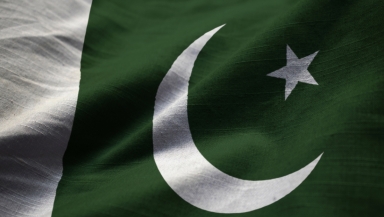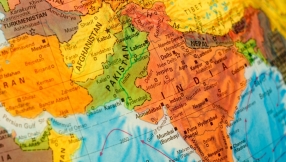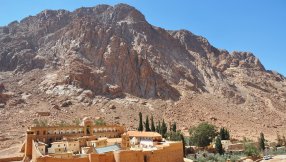
The joy of witnessing Pope Leo XIV’s inauguration was quickly overshadowed by the harsh reality: Pakistan overlooked Christian representation at a landmark Vatican ceremony.
The Pakistan’s government sent an official delegation consisting of Yousaf Raza Gillani, Kheal Das Kohistani, and Ramesh Singh Arora, but did not consider it necessary to include any Christian lawmakers in the delegation.
Hearing this it suddenly seemed obvious: Pakistan is a broken country, consistently missing key opportunities to demonstrate its commitment to diversity, inclusion, and fair representation of all faiths. It is disturbing that this is happening.
Regrettably, the government's decision to mute the Christian voice at the Vatican ceremony not only overlooks this immoral legacy but also raises serious questions about its commitment to the principles of equality and justice, as envisioned by Pakistan’s founding father, Muhammad Ali Jinnah.
Like many others, I am shocked that not a single Christian representative was picked—despite the presence of capable, respected Christian members in both the National Assembly and the Senate.
The delegation also met with Cardinal Joseph Coutts, who was in the Vatican for the Papal Conclave. But instead of showing genuine respect, the meeting seemed more like an attempt to cover up the clear lack of Christian representation in the group. The fact that this was done without any sign of concern highlights the government’s political insensitivity.
Sounding genuinely concerned, Pope Leo XIV expressed his hope for the Catholic Church to serve as a “small haven of unity” amid an era marked by “too much discord and too many wounds.” He made the statement during his inaugural Papal Mass, which was attended by leaders including Ukrainian President Volodymyr Zelenskyy, US Vice President JD Vance, and Marco Rubio, United States Secretary of State.
More importantly, the Pope's inaugural mass underscored the global significance of Christian communities—not only in representing their countries on cross-cultural platforms, but also in making meaningful advances in their civil and economic rights.
How can we forget that the Pope's inauguration is far more than a ceremonial welcome; it is a monumental event on the world stage—an opportunity for nations to demonstrate their values and commitment to safeguard the freedom of religion or belief (FoRB). This moment offers a valuable opportunity for the world’s democracies to reflect on the essential role of states and their institutions in fostering unity and collective progress.
Pakistan is home to millions of Catholics who have made significant contributions to the country, especially in education and healthcare in all provinces. Thousands of Catholic schools across the nation continue to serve communities with dedication and quality.
I have not come to this conclusion lightly that the absence of Christian representative in the Pakistan’s delegation was not just a diplomatic oversight but a deeply symbolic failure, highlighting the systematic marginalization of Christians. At a time when gestures of inclusion carry immense moral and political weight, Pakistan’s silence spoke volumes, casting a shadow over its commitment to pluralism, tolerance, and the basic dignity of all its citizens.
It is deeply disheartening—and, sadly, has become a subject of widespread criticism—that the Pakistan Government appears to intentionally disregard its Christian lawmakers, both within its political spheres and at one of the most significant global events where spiritual leadership is chosen.
Such acts are the result of bad decision-making which not only undermines the Christian community’s rightful place in the nation’s political and social fabric but also sends a troubling message to the world.
The Pope’s Inaugural mass is rich in tradition and spiritual significance and served as a reminder of the enduring influence of the papacy in promoting peace, dialogue, and compassion across borders. Yet, in stark contrast to this spirit of unity, Pakistan's official delegation stood out for its glaring omission of a Pakistani Christian voice.
The representation of religious minorities has been systematically reduced to an endless brawl—not by the public, but by the political elite. For years, power brokers have exploited this issue through selective engagement and token gestures. The core problem lies not in societal acceptance, but in consistent government inaction.
The exclusion of a Christian voice at the Papal inauguration sparked widespread protest and disappointment among Christian communities not only in Pakistan but across Europe, the UK, and the US. The blatant oversight has been strongly rejected by Christians, intensifying feelings of frustration and alienation within the community.
The solemn funeral service of Pope Francis was previously attended by Catholic Senator Khalil Tahir Sandhu who stood in dignified presence, representing not only the government but also carrying the collective grief and heartfelt condolences of millions of Catholic Christians and clergy across Pakistan.
His attendance was a rare but meaningful acknowledgment of Pakistan’s diverse religious fabric and a quiet yet poignant message of unity during a time of mourning on an international stage.
Why then were millions of Pakistani Christians, many of them Catholic, left without a voice at the Pope’s Inaugural Mass? It was a significant moment, and the absence was both noticeable and inexplicable.
Pakistan’s unrepresentative delegation to the Vatican highlights a glaring oversight—despite having several Christian MNAs and a Senator in Parliament, the political elite continues to abandon Christian representation. This exclusion extends beyond the cabinet and now plays out on the international stage. It reflects a nation fractured by division and conflicting interests.
In my room, a portrait of martyred Salman Taseer and Shahbaz Bhatti is taped to the wall—a powerful reminder of the cost of demanding equality and justice in Pakistan. It is a quiet protest, a tribute to the truth that equal rights aren't a privilege—they're a promise every mother state owes her citizens.













